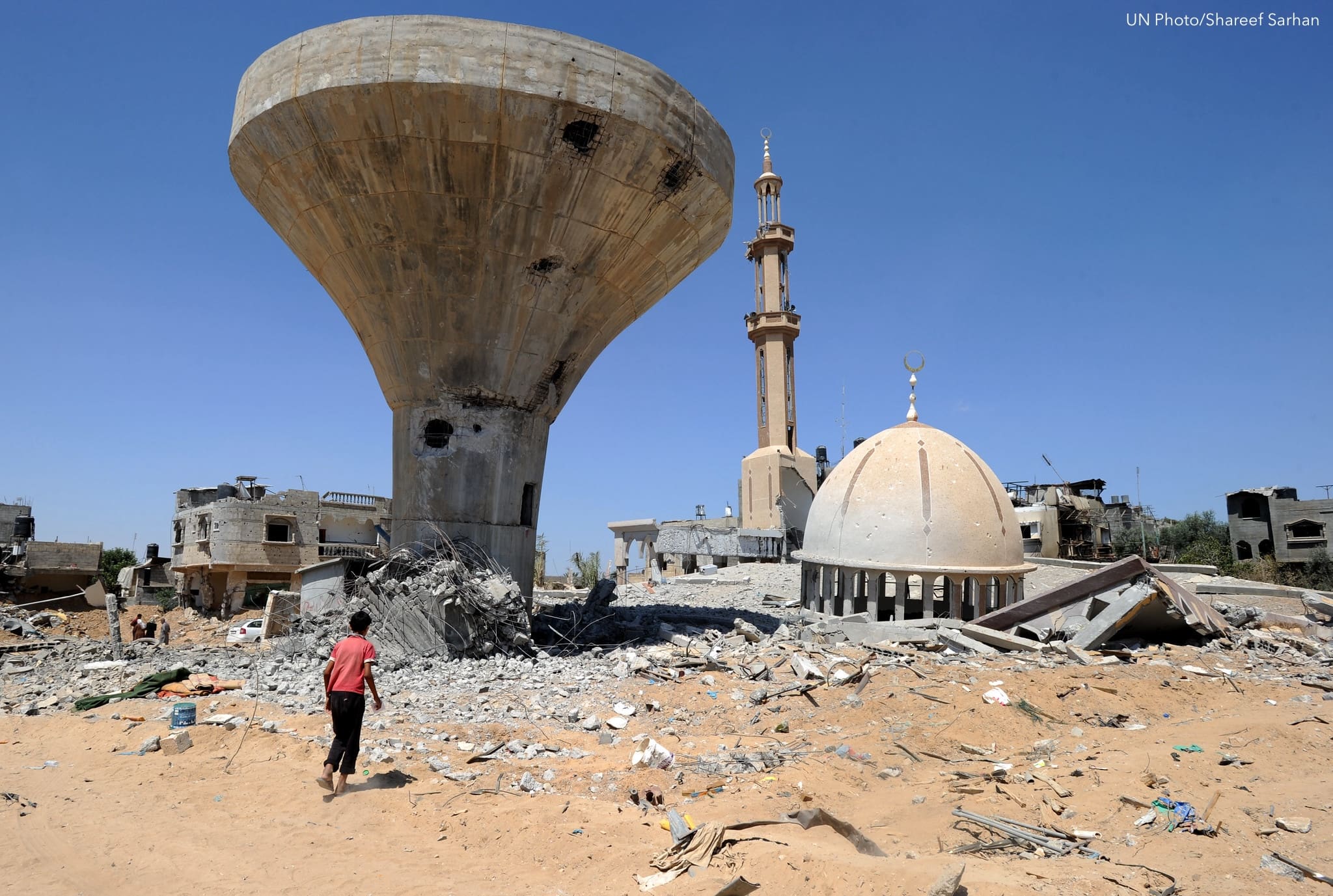
For over a year, Israel’s ongoing genocidal campaign has left Gaza devastated, with entire neighborhoods reduced to rubble and critical infrastructure decimated. Israeli forces have targeted and destroyed hospitals, schools, power plants, and water treatment facilities alike, not as collateral damage but as deliberate acts of collective punishment specifically designed to render Gaza uninhabitable.
Amid this unprecedented level of destruction, Gaza’s municipal workers, engineers, and residents continue efforts to rebuild what they can, reconstructing public services while under constant fire. Their efforts are not only about survival but defy a campaign that seeks to erase Palestinian existence outright.
In this policy lab, Yara Asi and Layth Hanbali join host Tariq Kenney-Shawa to discuss Israel’s systematic assault on civilian infrastructure across Gaza and efforts to survive and rebuild against all odds.













